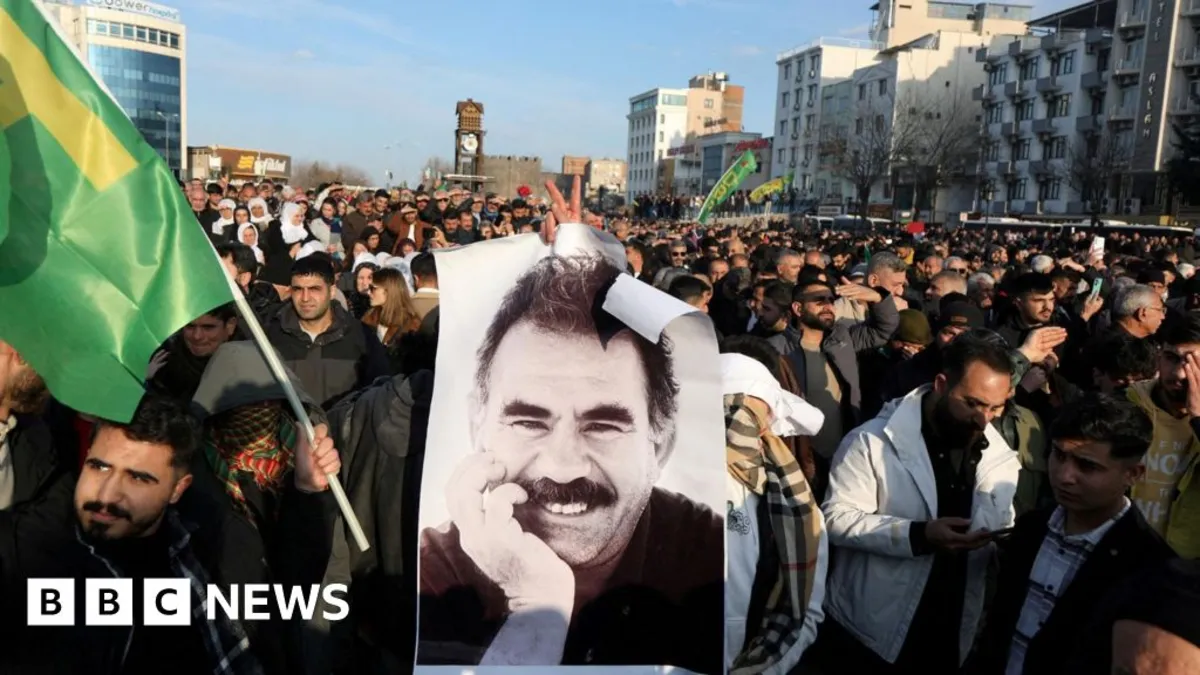
The outlawed Kurdish group PKK, known for its 40-year insurgency against Turkey, has made a groundbreaking announcement regarding its future. In a significant move, the PKK has declared that it will lay down its arms and disband, following a call from its incarcerated leader, Abdullah Ocalan, earlier this year. This decision marks a pivotal moment in the long-standing conflict that has shaped the dynamics of Turkish-Kurdish relations.
Initially, the PKK aimed to establish an independent homeland for the Kurdish population, which constitutes approximately 20% of Turkey's populace. Over the years, however, the group's objectives have shifted away from outright separatism towards seeking greater autonomy and enhanced rights for Kurds within Turkey. Despite its evolving stance, the insurgency has resulted in the tragic loss of over 40,000 lives since its inception.
The decision to disband comes in the wake of a statement released by the PKK through its affiliated news agency, ANF. The group has stated that it has completed its "historical mission" and will cease its armed struggle. They emphasized that the Kurdish issue can now be addressed through democratic politics, a sentiment echoed by Ocalan, who has been in solitary confinement on an island prison since 1999. In a letter written in February, Ocalan highlighted the necessity of democracy in achieving a viable political system, asserting that "democratic consensus is the fundamental way."
While the exact implications of the PKK's disbandment remain unclear, there are speculations regarding potential concessions for Ocalan and his supporters, including the possibility of his release on parole. Kurdish politicians are cautiously optimistic, hoping this shift could lead to a renewed political dialogue and progress towards greater Kurdish rights.
The timing of this announcement is crucial, as both the PKK and the Turkish government have compelling reasons to pursue this course of action. The PKK has faced significant military pressure from Turkish forces in recent years, while geopolitical changes have limited its operational capabilities in both Iraq and Syria. For President Recep Tayyip Erdogan, securing the support of pro-Kurdish political parties is essential for his potential candidacy in the upcoming presidential elections in 2028.
A spokesperson for Erdogan's ruling AK Party stated that the decision to disband represents a crucial step towards achieving a terror-free Turkey. The party has indicated that the disbandment process will be closely monitored by state institutions, underscoring the importance of this development in Turkey’s political landscape.
According to Winthrop Rodgers from the international affairs think tank Chatham House, a significant democratic transition in Turkey is necessary to accommodate the demands of Kurdish political parties. He noted that there has been some goodwill from Turkish leaders in recent months, which has facilitated the PKK's decision to disband. However, he cautioned that it remains uncertain whether this goodwill will translate into the substantial changes required for full Kurdish participation in Turkish politics and society. Ultimately, the next steps lie firmly in Turkey's hands.